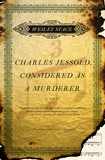Write your own review!
Jean T. (Paducah, KY)
A Mystery Maestro
My first thought as I began reading "Charles Jessold" was “this is delicious!” which seemed a bit incongruous for a musical novel, but I was “hungry for more!” As I continued through the intricate twists and turns that comprise the narrator’s tale of murder set against a background of love won and lost, psychological intrigue, musical history, and war, I generally found Mr. Stace’s prose to be amusing, clever, engaging, and far from the run of the mill approach to unwinding a mystery. In this way I truly enjoyed this book. My only two quibbles with the novel were that there was a section about half to two- thirds into it where it began to get a bit tedious and I was feeling myself wanting to jump ahead, but then I was back following intensely for the last several chapters; and the other quibble was at times I found the musical references a bit too erudite and I was wishing my musical knowledge was a bit more “up to snuff”. Overall I enjoyed the book a great deal and I would definitely recommend it to other mystery lovers.
Jane C. (Brighton, MI)
Charles Jessold Considered as a Murderer
Unique combination of music and literature, with a little murder thrown in. All of the pieces are blended well. Interesting character development as people moved in and out of the scenes. Written from the perspective of a man who know Charles Jessold, warts and all.
Diana C. (Delray Beach, FL)
A Lyrical Murder Mystery
Written in the nuanced language of early 20th century England, this is the engaging story of fictional composer Charles Jessold's life, as well as the life of his friend, music critic, and the story's narrator, Leslie Shepherd. The underlying murder mystery and descriptive passages of life during pre and post World War One Europe, pulls this novel out of the depths of the author's professorial dissertation on 19th and 20th century operettas and traditional folk music. Concentration is the key, and for that you will be richly rewarded.
Elaine Denise J. (Midland, TX)
Atonal As the Music Jessold Composed
Following the dress rehearsal of Jessold's opera Little Musgrave, Charles Jessold, is found shot dead beside a bed in which his soprano wife and her lover lie dead. Jessold's new opera was based on a folk song about a lord who slays his wife and her lover when he returns from the hunt and finds them in bed. Two other love triangles are intertwined within the novel: Carlo Gesualdo is an historical Italian composer who slew his wife in similar circumstances and the legend of King Mark, Tristan, and Isolde.
The story of Jessold's murder/suicide is told by a music critic and Jessold's long-time friend Leslie Shepherd. Sheperd and Jessold have spent time collecting folk songs where Jessold found the tale of Little Musgrave—the topic of his later opera. This is Stace's third novel and involves the atonal discordant music of the beginning of the Twentieth Century.
Too often, I felt that a stronger knowledge of music would have enhanced my appreciation of and understanding of the novel. Stace never made me believe, or feel, that Jessold was a composer of note. The friendship between Jessold and Sheperd seemed tenuous and I had to keep telling myself that they were supposed to have a strong friendship. I did not like any of the characters in this novel. Wesley Stace is a clever, polished writer and many of his sentences are gems. Stace also has a great sense of humor that shines in the writing, so I wish I could give a higher review of this title.
Julie B. (Menomonee Falls, WI)
Hard Read
As much as I wanted to like this book, I really did not. The language was hard to understand unless without being an expert in opera. The plot was very slow, and the characters were unlikable and flat. I did finish the book, but would not recommend it to anyone who is not intimately acquainted with the nuances of music, particularly opera.
Mary Ann B. (Louisville, KY)
No Night at the Opera
I had a hard time getting through this book. If you know Opera, and like it, maybe it is more interesting and meaningful. Unfortunately for me, I only felt indifference toward all the main characters.
Wendy E. (Mechanicsville, VA)
I Just Couldn't Embrace It
I wanted to like it. I certainly enjoyed the erudite language, the plentiful allusions and the premise -"music-club" men collecting authentic English songs before they were lost to time. This was a slow read. I was hoping for a more engaging mystery and a bit quicker pace. Sometimes that clever language and reference-rich prose became tiresome.
Mary L. (Madison, MS)
Difficult Read
I received this book with much excitement. However, I struggled to read it. The plot was slow to develop. The book was written in the manner of speaking of Victorian England. It also had many references to opera and music that although I am fairly versed in this subject, I still had to look up the references. Once the plot finally gelled, I began to enjoy the book. (I read the ARC. I expect a good editor will tighten the plot). However, I was able to anticipate the plot twist. This book is a fair first attempt at a mystery. Any opera lover would enjoy this book just to gain a feel of English opera in Victorian England. up the references. Once the plot finally gelled, I began to enjoy the book.




